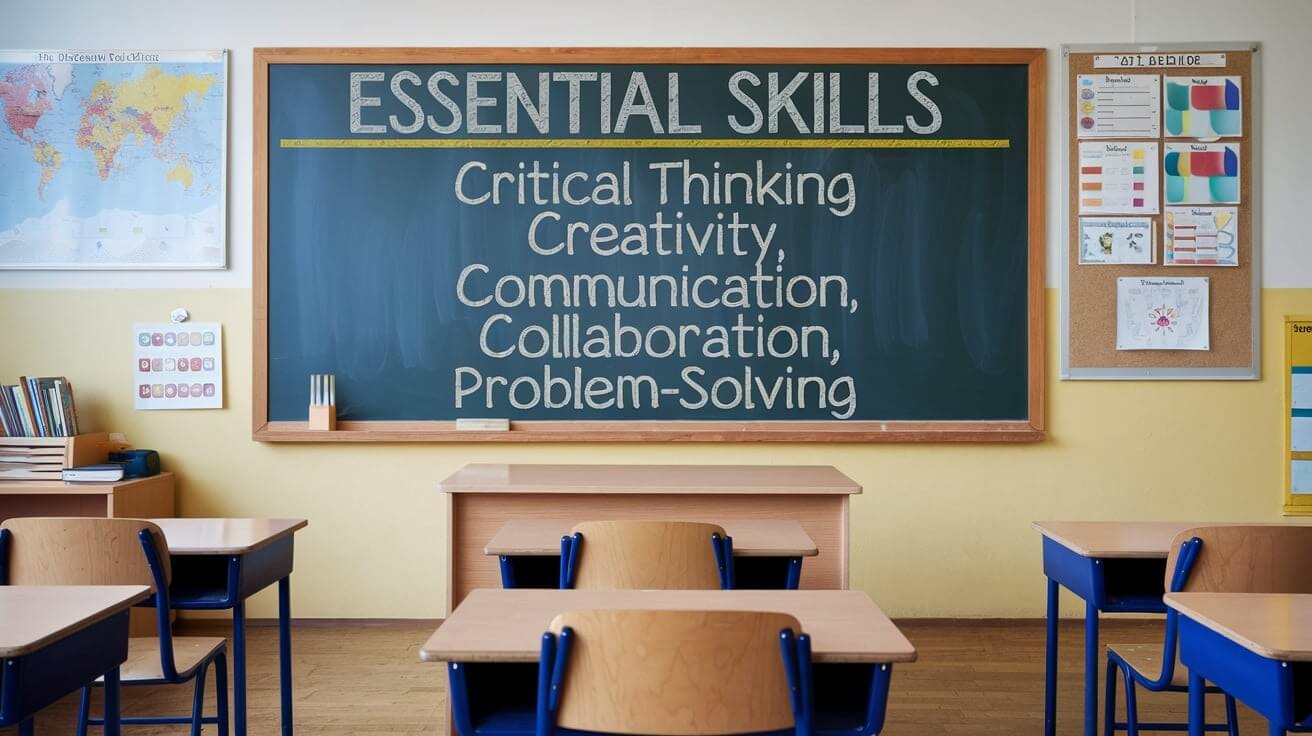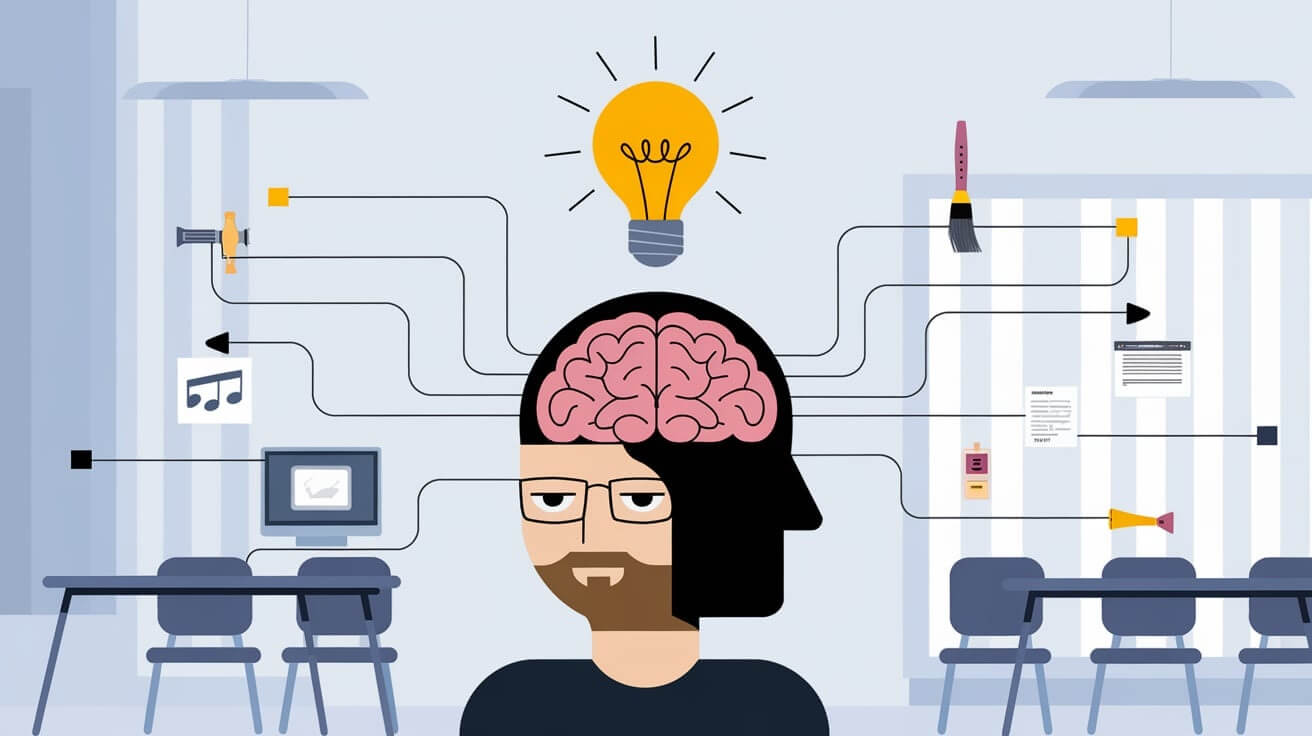
Essential Learning Skills for Students and Professionals
Learning is one of our most powerful tools for personal and professional growth. Whether you’re a student juggling coursework and deadlines or a professional navigating workplace challenges, learning skills can make your path smoother and more productive. These aren’t just academic or technical abilities—they help you process information, communicate effectively, and adapt to new situations.
This article will explore the essential learning skills needed to excel as a student and thrive professionally. You’ll also find practical tips, real-life examples, and actionable strategies to build these skills today. Let’s get started.
What Are Learning Skills?
Learning skills are the building blocks of personal and professional development. They encompass various strategies, techniques, and habits that empower individuals to acquire, process, and apply knowledge effectively. These skills enhance academic or workplace performance and foster adaptability and lifelong growth.
Learning skills can be grouped into several key areas. Cognitive skills like memory, critical thinking, and analytical reasoning help you process and understand complex information. Memory aids in retaining knowledge, while critical thinking allows you to evaluate and make sense of it logically.
Organizational skills, like time management and task prioritization, ensure you can structure your work or study efficiently, meeting deadlines and minimizing stress. Similarly, collaboration skills, including teamwork and communication, are vital for group projects or professional settings where cooperation is critical to success.
Creative skills are equally important. They enable you to think outside the box and innovate in problem-solving or developing new ideas. Paired with technical skills like using digital tools or understanding new technologies, they allow you to stay relevant in today’s dynamic world.
Ultimately, learning skills create a foundation for continuous improvement, equipping you to solve problems, make informed decisions, and embrace growth opportunities in every area of life.
Why Are Learning Skills Important?
Strong learning skills can:
-
Help students achieve better academic outcomes.
-
Enable professionals to stay relevant in their industries.
-
Foster adaptability in a rapidly changing environment.
For example, a student using time management skills can balance studying and extracurricular activities, while a professional with strong problem-solving skills can easily handle unexpected workplace challenges.
Some Examples of Learning Skills
Here are some examples of learning skills for career growth.
1. Organisational Skills
| Skill | Description |
|---|---|
| Workspace Cleaning | Keeping your work area tidy to enhance focus and productivity. |
| Work Organisation | Structuring tasks efficiently for better workflow. |
| Identifying Objectives | Defining clear goals to achieve desired outcomes. |
| Schedule Planning | Creating and managing timetables for effective time use. |
| Meeting Deadlines | Completing tasks within set timeframes to maintain reliability. |
| Productivity | Maximizing output while maintaining quality in work. |
| Note-taking | Capturing essential information for better recall and understanding. |
| Time Management | Allocating time wisely to balance priorities effectively. |
| Project Management | Planning and executing projects to achieve specific goals. |
| Information Management | Organizing and storing data for easy access and use. |
| Multitasking | Handling multiple tasks simultaneously without compromising quality. |
| Strategy Implementation | Executing plans systematically to meet objectives. |
| Event Coordination | Planning and organizing events efficiently to ensure smooth execution. |
2. Communication Skills
| Skill | Description |
|---|---|
| Active Listening | Paying full attention to understand and engage with the speaker. |
| Straight Talk | Conveying messages clearly and directly to avoid misunderstandings. |
| Public Speaking | Presenting ideas confidently to engage an audience effectively. |
| Writing | Communicating ideas through clear and structured text. |
| Reading Comprehension | Understanding written information thoroughly for better decision-making. |
| Negotiation | Finding mutually beneficial solutions through discussion. |
| Empathy | Understanding and sharing others' feelings to build connections. |
| Respect | Valuing others' perspectives and maintaining courteous interactions. |
| Stress Management | Staying calm under pressure to handle situations effectively. |
| Emotional Control | Managing emotions to maintain professionalism in challenging circumstances. |
| Body Language | Using nonverbal cues to communicate effectively. |
| Observation | Noticing details to understand situations and people better. |
| Clarification | Asking questions to ensure an accurate understanding of information. |
| Feedback | Providing constructive input to improve performance or outcomes. |
| Situation Analysis | Assessing contexts to make informed decisions. |
3. Collaboration Skills
| Skill | Description |
|---|---|
| Engagement | Actively participating in teamwork and group discussions. |
| Compromise | Finding a middle ground to resolve conflicts and maintain harmony. |
| Conflict Resolution | Addressing disagreements constructively to achieve positive outcomes. |
| Reliability | Being dependable and trustworthy in fulfilling commitments. |
| Responsibility | Owning tasks and being accountable for results. |
| Dependability | Ensuring consistent performance and reliability in all interactions. |
| Team Interaction | Collaborating effectively with colleagues for better results. |
| Leadership | Guiding and motivating others to achieve shared goals. |
| Resource Allocation | Distributing resources efficiently to optimize outcomes. |
| Task Delegation | Assigning tasks to team members based on their strengths. |
| Adaptability | Adjusting to changes and challenges with flexibility. |
| Patience | Maintaining calmness when facing delays or frustrations. |
| Diplomacy | Handling sensitive issues tactfully to maintain relationships. |
4. Critical-Thinking Skills
| Skill | Description |
|---|---|
| Critical Thinking | Analyzing information objectively to make logical decisions. |
| Analytical Thinking | Breaking down problems to understand their core components. |
| Attention to Detail | Noticing small details to ensure accuracy and quality. |
| Identifying Problems | Recognizing issues that need solutions to prevent larger complications. |
| Evaluation | Judging the value or relevance of information critically. |
| Research | Gathering and analyzing data to gain insights. |
| Compare and Contrast | Identifying similarities and differences to improve understanding. |
| In-Depth Reading | Analyzing texts thoroughly to extract key ideas and details. |
| Inferencing | Drawing conclusions based on evidence and reasoning. |
5. Creative Skills
| Skill | Description |
|---|---|
| Creative Thinking | Generating innovative and original ideas. |
| Creative Writing | Expressing thoughts creatively through written words. |
| Design | Crafting visuals or layouts to communicate ideas effectively. |
| Curiosity | Eagerly seeking knowledge and exploring new ideas. |
| Questioning Mindset | Asking insightful questions to drive deeper understanding. |
| Discipline | Staying focused and consistent in creative endeavors. |
| Open-Mindedness | Embracing diverse perspectives and approaches. |
| Problem-Solving | Thinking creatively to overcome challenges. |
| Brainstorming | Generating ideas collaboratively to develop innovative solutions. |
| Playfulness | Approaching tasks with creativity and a sense of exploration. |
| Innovation | Introducing new methods or ideas to improve processes. |
| Repurposing | Adapting existing resources for new uses. |
| Technical Knowledge | Applying expertise to enhance creative solutions. |
Learning Skills for Students
Students often face challenges such as staying focused, managing time, and mastering new material. The following skills are essential for academic success:

1. Active Listening
Active listening is more than just hearing—it’s about understanding and engaging with shared information.
-
How to Improve: Take notes, ask questions, and summarize key points.
-
Example: A student in a biology lecture actively listens, takes clear notes, and later uses them to create a study guide.
2. Critical Thinking
Critical thinking involves analyzing information, questioning assumptions, and making logical decisions.
-
Tip: Use tools like concept maps to break down complex ideas.
-
Example: A student evaluates different sources for a research paper to ensure credibility.
3. Time Management
Effective time management helps students prioritize tasks and avoid last-minute stress.
-
How to Practice: Break assignments into smaller tasks and set deadlines for each.
-
Statistic: Research shows that students who manage their time well are 20% more likely to meet academic goals.
4. Collaboration
Working in groups teaches students how to share responsibilities and communicate effectively.
-
Example: A group project where team members divide roles based on their strengths leads to a successful outcome.
5. Adaptability
Students often face unexpected changes, such as shifts in curriculum or new teaching methods.
-
How to Adapt: Keep an open mind and seek alternative solutions when challenges arise.
Learning Skills for Professionals
For professionals, learning skills are critical for career growth and workplace efficiency. Here are the essential skills every professional should develop:
1. Problem-Solving
Finding practical solutions to challenges is essential for success in the workplace.
-
Example: A marketing professional brainstorms creative ways to boost engagement when campaign metrics drop.
2. Communication Skills
Clear communication ensures that ideas are understood and collaborations run smoothly.
-
How to Improve: Practice active listening, provide constructive feedback, and use concise language in emails and reports.
3. Self-Motivation
Self-motivation allows professionals to achieve goals without constant supervision.
-
Example: A software developer dedicates weekends to learning a new coding language, resulting in a promotion.
4. Digital Literacy
Being proficient with digital tools is essential in almost every field today.
-
Tools to Master: Excel, project management platforms, and cloud-based collaboration tools like Google Drive.
5. Emotional Intelligence
Emotional intelligence helps professionals manage their own emotions and understand others.
-
Example: A manager uses empathy to resolve team conflicts and boost morale.
Developing and Enhancing Learning Skills
If you want to improve your learning skills, here are some proven strategies and tools to get started:

1. Proven Strategies
-
Mind Mapping: Use a diagram or mind map to organize ideas visually, making it easier to identify relationships and patterns.
-
Spaced Repetition: Regularly review material over time to improve retention.
-
Active Recall: Test yourself on the material instead of passively re-reading.
2. Tools and Resources
-
Students: Use Quizlet for flashcards and Notion to organize notes.
-
Professionals: Explore LinkedIn Learning for industry-specific courses and Evernote for task management.
3. Overcoming Barriers
-
Procrastination: Divide larger tasks into smaller, manageable steps and establish realistic goals to stay focused and progress consistently.
-
Distractions: Designate a specific study or work area free of interruptions.
Benefits of Lifelong Learning
Learning doesn’t stop after school or even once you’ve landed your dream job. Here’s why lifelong learning is a game-changer:
1. Personal Growth
Learning new skills or hobbies keeps your mind sharp and boosts confidence.
-
Example: Learning a second language improves problem-solving and memory.
2. Career Advancement
Professionals who invest in learning are better equipped to handle challenges and seize opportunities.
-
Statistic: Employees who regularly update their skills are 30% more likely to receive promotions.
3. Resilience to Change
Lifelong learners adapt more quickly to new tools, technologies, and processes.
Real-Life Examples
A Student’s Academic Transformation
Sarina, a college student, struggled with managing her coursework. She began using a planner to schedule study sessions and adopted active recall for exam preparation. These changes significantly improved her GPA.
A Professional’s Career Growth
Jivesh, a project manager, took an online course on data analytics. This new skill boosted his confidence and earned him a leadership role in his company.
Conclusion
Learning skills are the cornerstone of success, whether navigating academic challenges or pursuing career goals. Developing these skills empowers you to adapt, grow, and achieve more.
Remember that learning is an ongoing process, not a one-time achievement. Start small, stay consistent, and embrace every opportunity to grow.
FAQs
1. What are the top learning skills for students?
Active listening, critical thinking, time management, collaboration, and adaptability.
2. How can professionals enhance their learning skills?
By practicing self-motivation, improving communication, and staying updated with digital tools.
3. What tools are helpful for learning?
Quizlet, Notion, LinkedIn Learning, and Evernote are excellent resources for students and professionals.
4. How can I balance learning with other responsibilities?
Use time-blocking techniques and set clear priorities to manage learning and responsibilities effectively.
5. Why is lifelong learning essential?
It fosters personal growth, career advancement, and the ability to adapt to change.






